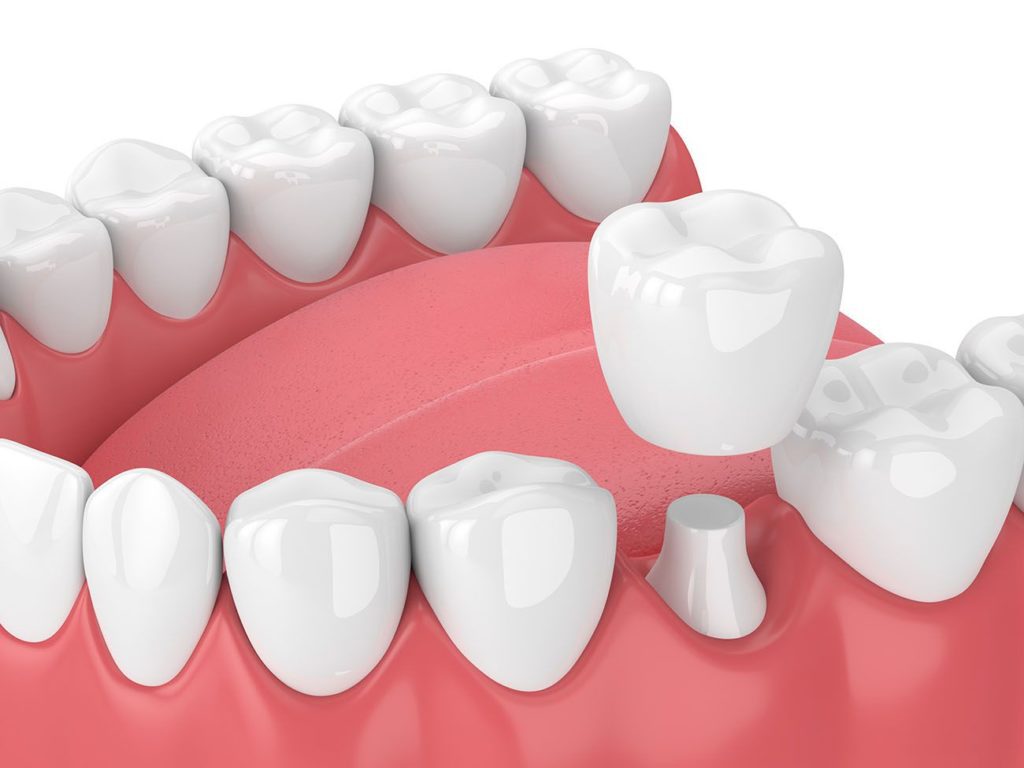A dental crown is a restorative dentistry tool that a dentist builds on a custom basis for their patients. This ceramic cap covers a tooth that has sustained structural damage. It seals into place with dental cement and offers both restoration and protection for the tooth that will last for many years.
Though the advantages of this treatment seem clear, you might feel more confident before undergoing this dental work if you know more specifics about what crowns can offer you. Read on to learn about four of the many benefits that a dental crown can provide for your oral health.

How Do Dental Crowns Improve Oral Health?
Replace Thinned Tooth Enamel
The enamel, the hard outer layer of the tooth, provides a cover for the vulnerable dental interior. Though durable, enamel can wear down over time, sometimes due to factors outside of your control. And once it erodes, it will not grow back on its own.
This could leave your smile at risk of tooth decay and other dental dangers. You might also feel tooth sensitivity as external stimuli reach the nerves within the tooth.
Your dentist can treat these issues and prevent further harm to your teeth with a dental crown. The cap replaces the lost enamel, creating a shield over the tooth once again. The seal ensures plaque will not infiltrate and hurt the tooth and that it will stay in place.
Fix Broken Teeth
Your strong teeth can withstand everyday wear and tear from constant chewing and biting. But accidents can occur that may generate pressure that can cause a tooth to crack, chip, or fracture. This is considered a dental emergency as this injury leaves the tooth at risk and can worsen without prompt treatment.
Your dentist can fix minor tooth breakage with cosmetic dental solutions. But a dental crown can restore more severe cracks and fractures in a tooth. It covers the structural damage so that the tooth can look and feel its best again.
Brighten Discolored Teeth
Though known as a restorative dental tool, a dental crown can also improve the aesthetic of a damaged tooth. Teeth can grow yellow, dull, or stained over time. Teeth whitening can vastly improve a patient’s tooth color, but some stubborn stains will resist this treatment.
In this case, a dentist can employ a crown to cover the discoloration in the tooth. Dentists design crowns on an individualized basis, so you can feel confident that the crown will look both gorgeous and natural in your smile as it appears brighter and whiter.
Support Other Dental Work
Dental crowns offer many oral health benefits on their own. But they can also provide ample support for other dental treatments. For instance, dentists will cover a tooth with a crown to preserve it after root canal therapy.
Dentists also use crowns to restore the structure of a tooth after treating it for advanced tooth decay. This both fortifies the tooth and prevents it from further damage. The crown can also serve as a prosthetic tooth atop a single dental implant.
